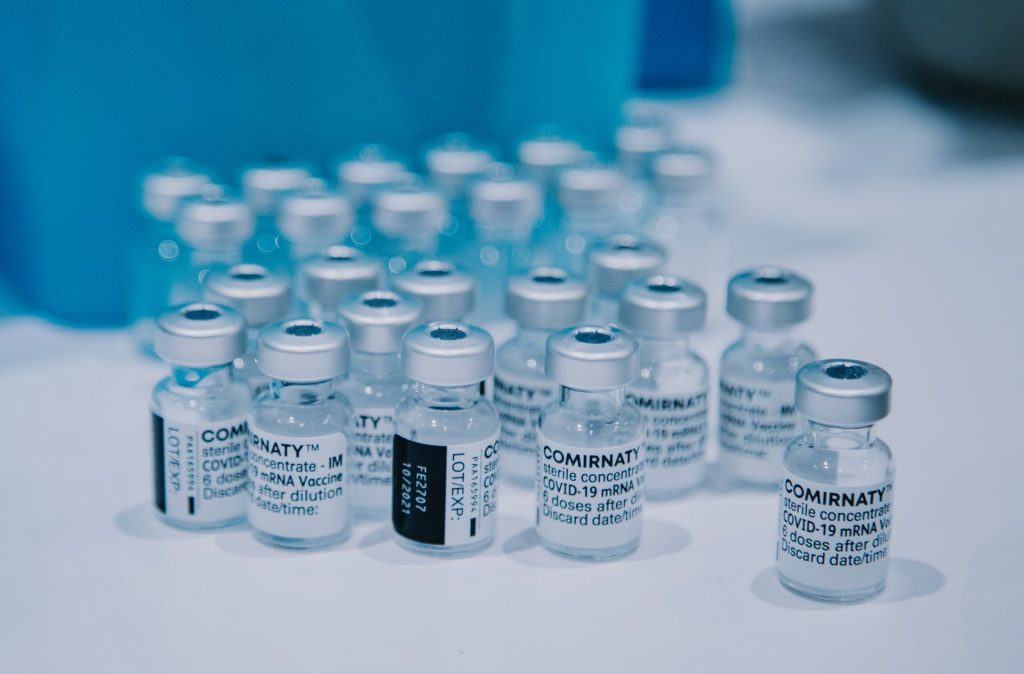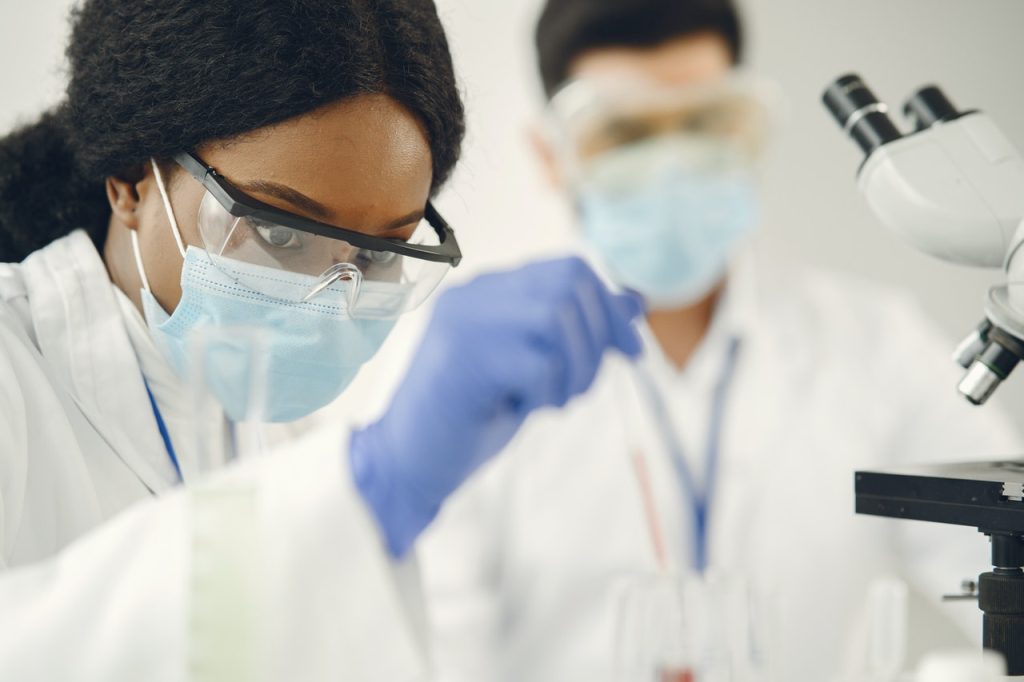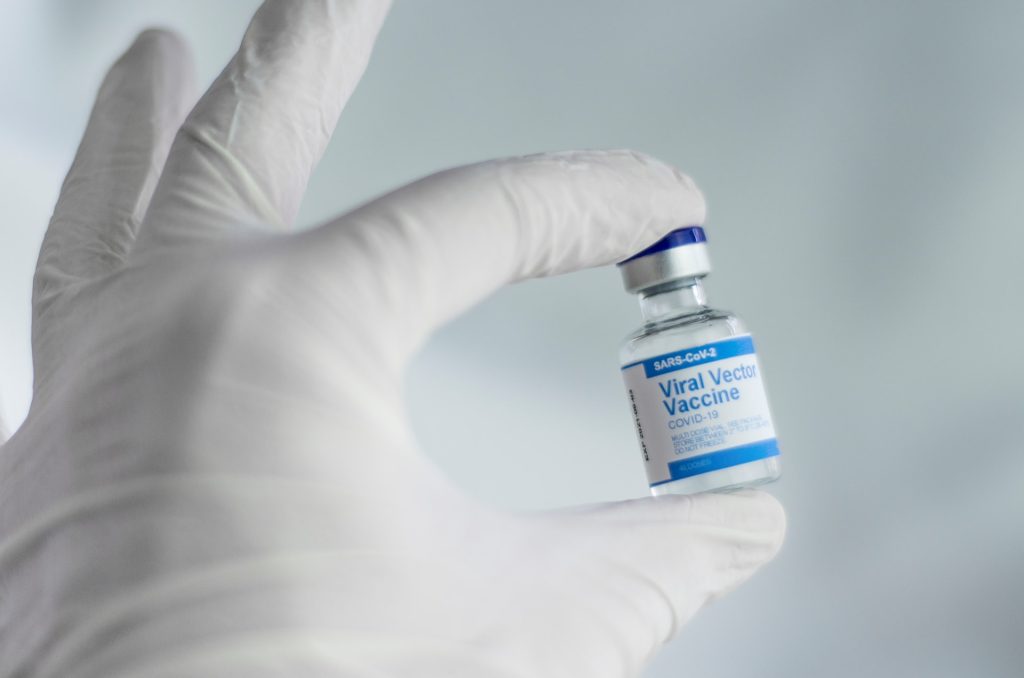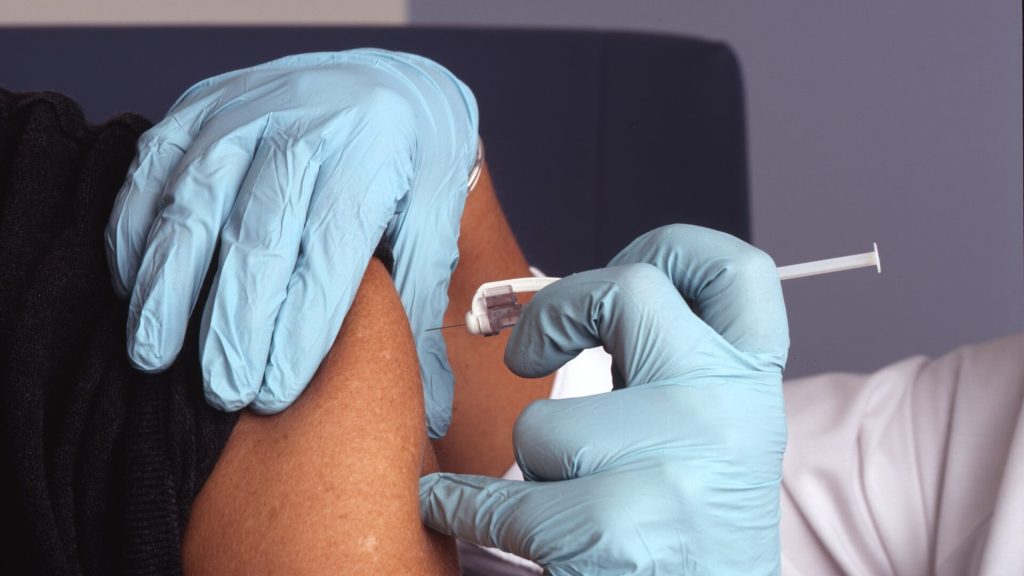“Not Being Afraid to Speak out, it does get me into Trouble Quite Often,” Says Prof Shabir Madhi
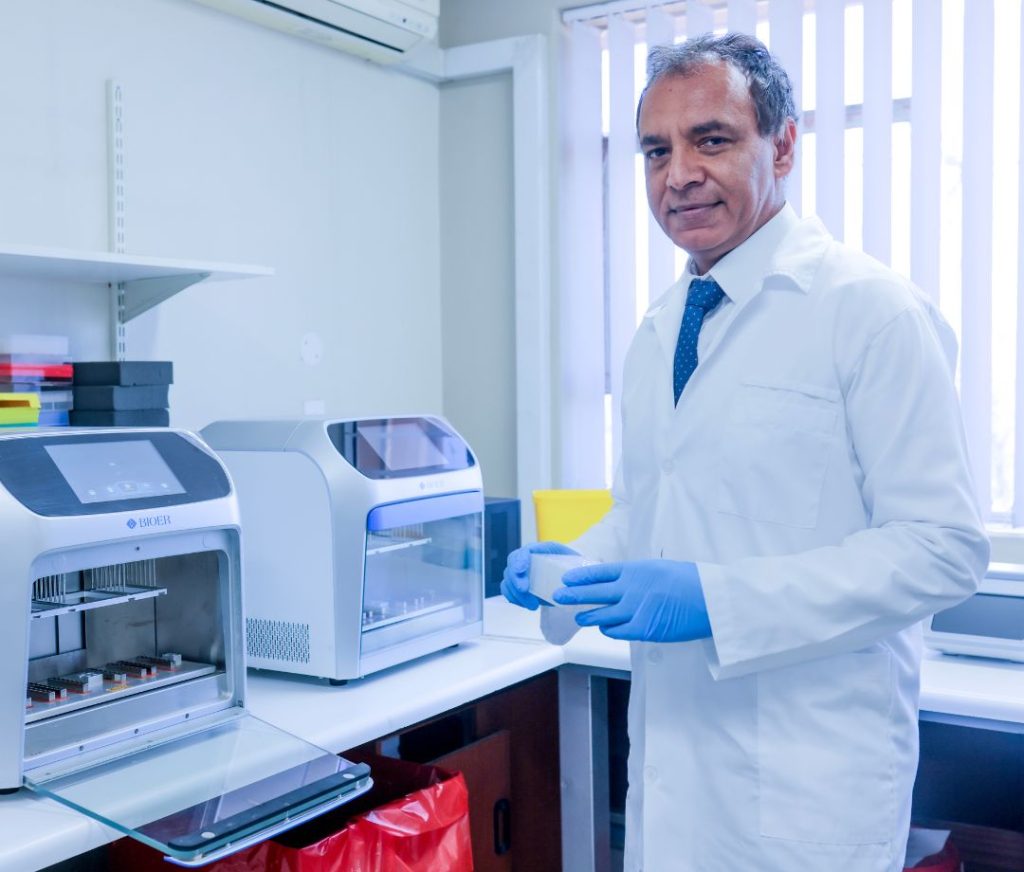
By Biénne Huisman
Amid the uncertainty of the early days of the COVID-19 pandemic, Professor Shabir Madhi often stood out for his clarity of thought in making sense of rapidly evolving scientific evidence. Biénne Huisman chatted to Madhi about vaccines, ongoing challenges with the Gauteng health department, and being outspoken about issues such as the war in Gaza.
Professor Shabir Madhi became known to many in South Africa for leading the charge in two of the first COVID-19 vaccine clinical trials conducted in Africa – those for the AstraZeneca and Novavax vaccines. At a time of much scientific uncertainty, he was often quoted in the press – gaining a reputation for keeping his cool and calling things as he saw them based on available evidence.
He spoke out against the politicisation of science and was a staunch advocate for access to vaccines, especially for older people at higher risk of severe illness and death. He wasn’t afraid to ruffle feathers, openly criticising government’s COVID-19 vaccine communication efforts and arguing that government should take vaccines to the people, rather than the other way around. He called for the ending of strict lockdowns, before many others did so. Reflecting on his reputation for not holding back on his beliefs, he admits to “having a short fuse, especially when people are talking nonsense – or what I consider to be entirely off the mark”.
What may be less obvious to the public, is that Madhi’s healthcare impact precedes COVID by decades.
Internationally respected for his research into paediatric infectious diseases, his work has helped to save the lives of hundreds of thousands of children and informed World Health Organization policy (WHO) – notably relating to the pneumococcal conjugate vaccine (to prevent pneumonia and meningitis) and the rotavirus vaccine (to prevent diarrhoeal disease in young children).
His work continues. Just last year a landmark study, led in South Africa by Madhi’s Vaccines and Infectious Diseases Analytics Research Unit at the University of the Witwatersrand (Wits), found that immunisation of pregnant women safely protected their unborn babies from respiratory syncytial virus (RSV). As Spotlight reported at the time, researchers estimate the vaccine can save thousands of young lives.
Speaking to Spotlight over Zoom from Wits in Johannesburg, where he is Dean of Health Sciences, Madhi relays his love of treating kids – who “most importantly, don’t lie, and who are the most vulnerable”.
“Accidental vaccinologist”
Madhi has been described as an “accidental vaccinologist”. Shrugging inside a navy suit, he says he never intended to become a physician, let alone a professor in vaccinology. At medical school at Wits, he nearly dropped out after a month.
As a child, growing up in Lenasia, Madhi wanted to become an engineer. But born to a mathematics teacher father and a stay at home mum, money was tight. His only opportunity to attend university presented itself via a bursary in medicine.
“I only really started to enjoy medicine once I specialised in paediatrics,” he says. “But more importantly, that’s when I realised the huge potential that existed in medicine to make a difference, particularly the potential for vaccines to make a big difference over a short period of time – not on an individual level, but at a community level. And that’s what really drove me into the space of research.”
While doing his peadiatric training at Chris Hani Baragwanath Academic Hospital (he obtained a master’s degree in paediatrics from Wits in 1998), it struck him that the leading causes of death among children were entirely preventable.
“Back then, close to 750 000 children were dying of measles globally; half of those deaths were happening in Africa, despite the vaccine for measles being available since the 1970s. South Africa was one of the countries with a poor public immunisation programme; up until 1992 South Africa didn’t have a public immunisation programme.”
In 2009, in a first on the African continent, pneumococcal and rotavirus vaccines were finally officially rolled out in South Africa.
“While I was training at Baragwanath, there was a ward just for children with gastroenteritis or diarrhoea,” he recalls. “But six months after we introduced the rotavirus vaccine in South Africa [in 2009], we shut down the diarrhoea ward at Baragwanath and probably every other diarrhoea ward in the country.”
Contributing internationally
Today Madhi’s CV is long. He sits on scores of scientific advisory committees, attending conferences and delivering talks around the world.
Since 2019, he has served on a global panel of experts convened by the WHO, the Strategic Advisory Group of Experts on Immunization (SAGE), of which he now is deputy chair. He also chairs the SAGE working group on polio.
“I’m really enjoying SAGE at the moment,” he says. “This is where I think I am making a meaningful contribution. It really is an eye opener to the different types of research that’s taking place globally; but also the type of challenges we face in terms of ensuring that children are adequately immunised.
“It’s great to be working on new vaccines, coming up with new vaccines; but that’s a meaningless exercise unless you can ensure that those vaccines are getting into the arms of children – because that is what saves lives. So yes, dealing with issues around implementation and advocacy.”
SAGE requires frequent trips to Geneva, where the WHO is based.
Our discussion turns to business travel – the amount required for a researcher to remain “relevant and competitive”. With typical candour, Madhi outlines challenges faced by researchers from the global south.
“I think coming from South Africa, coming from the African continent, it’s more of a challenge for researchers to establish themselves, for a number of reasons. Firstly to become known in the international space, you probably need to deliver so much more than what is expected from our northern hemisphere counterparts.
“Then in addition to the inconvenience of needing to travel so often, there are subtle things which people in the northern hemisphere don’t have to deal with. Needing to get visas and dealing with customs officials when entering countries.
“It can become an extremely unpleasant experience, and you really need to swallow your pride given what is blatant racism at times. For example, nowadays I refuse to fly through Germany because the customs office in Frankfurt is probably the worst I have encountered. All of a sudden, they would keep me and question me for both arrival, as well as departure…”
Local challenges
The discussion turns back to South Africa, and health challenges in his home province of Gauteng. Here also Madhi has tried to make a difference, but it hasn’t been plain sailing.
Commenting on a floundered memorandum of agreement (MOA) signed between Wits and the Gauteng Department of Health in June 2022, Madhi says: “The bottom line unfortunately; the Gauteng Department of Health simply doesn’t have stability of leadership. At the level of the MEC in particular; I mean since I’ve been dean, there’s been about four or five heads of department. And it becomes difficult to follow through with any of these programmes.”
Madhi adds that Wits university executives had worked on the memorandum for seven years. The agreement set out a plan to combine university and government resources in “academic health complexes” for enhanced service delivery. But the Department of Health put it on hold three months later, following a related Public Service Commission inquiry.
He explains: “They convened this big workshop, spending probably a mini fortune, to basically facilitate the establishment of an MOA, not just between Wits and the Department of Health, but between the Department of Health and many other academic hospitals in the province. Because of the intervention, the Department of Health indicated that they weren’t going to implement our MOA until that particular commission concluded their work. But since then, there’s been absolutely no report from that meeting.”
Not afraid to speak out
On social media, Madhi speaks out about atrocities being committed in Gaza.
To Spotlight, he says leadership holds no place for neutrality.
“As part of leadership, and I do consider myself a leader in the different roles that I play – either in my research unit or currently as university dean – you need to be prepared to take a stance. You can’t remain neutral on positions. You need to interrogate facts. And once having interrogated the facts, you need to reach a conclusion; then follow through with what is required, if there’s anything that needs to be implemented.”
Madhi says his leadership style was honed during childhood. “Not being afraid to speak out, it does get me into trouble quite often,” he says, laughing. “I think that’s just part of my upbringing, being an activist during apartheid in the Lenasia Youth League and other activist organisations. My upbringing was, when things are not what it’s meant to be, you speak out; you champion the right cause.”
These days Madhi lives in Northcliff with his wife, with whom he has two children. His favourite football team is Arsenal and a book he says he recently enjoyed was The Covenant of Water – a three generation family account set in India, by physician and author Abraham Verghese.
Republished from Spotlight under a Creative Commons licence.


